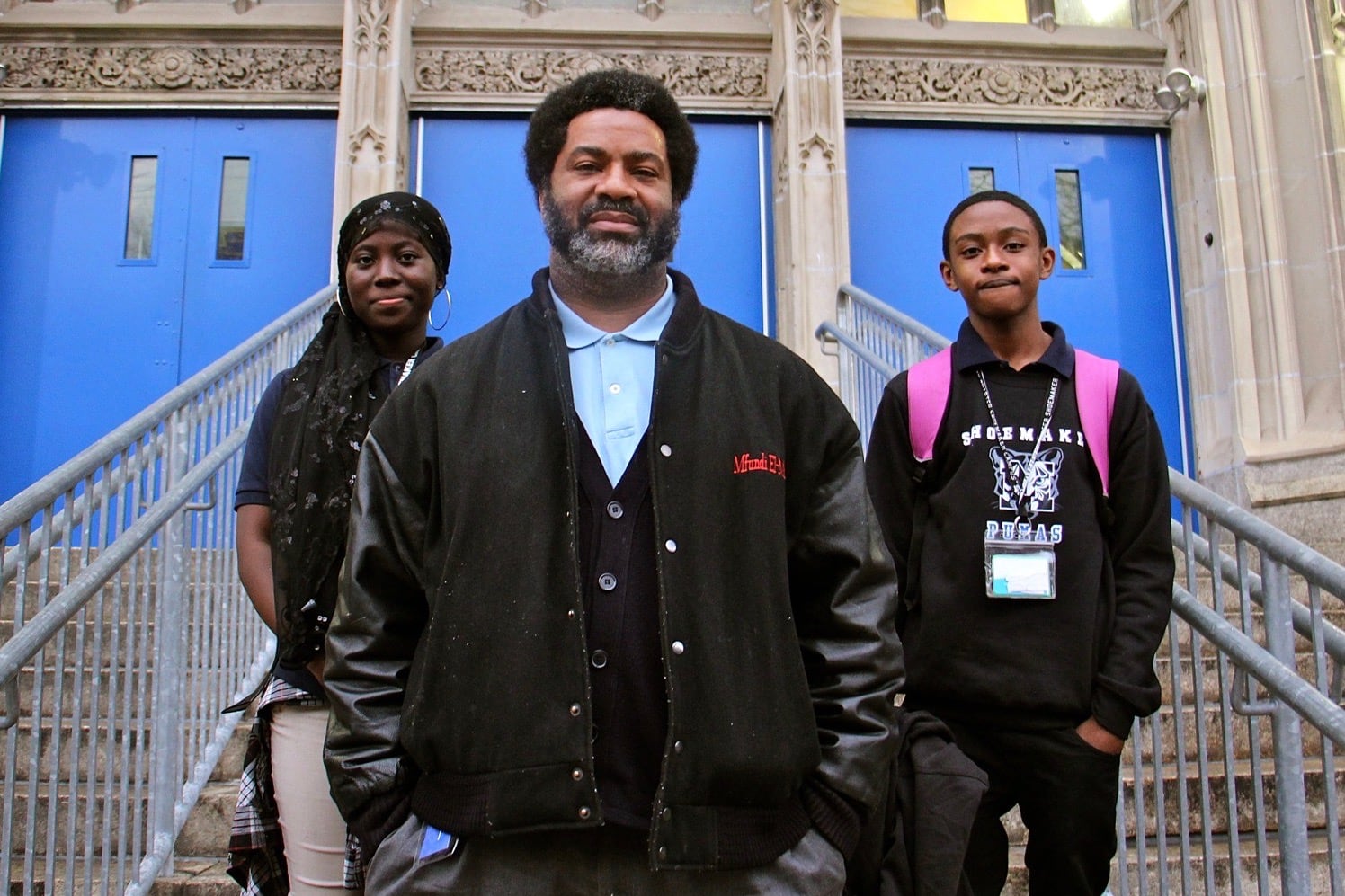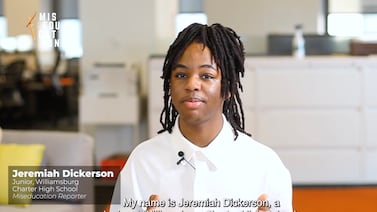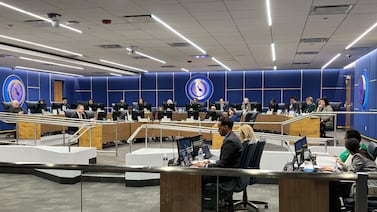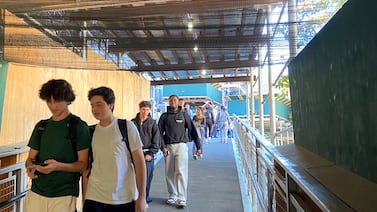The Center for Black Educator Development, founded by veteran Philadelphia educator Sharif El-Mekki, is entering a new phase in its quest to dramatically change the face of the country’s teaching profession.
In what it is calling a “national educational justice campaign,” the organization will use $3.1 million in new funding from several foundations and venture capitalists to launch two major initiatives to nurture future teachers of color across the country.
The Black Teacher Pipeline will identify and cultivate high school and college students for careers in education, offering them apprenticeships starting in high school, mentorship into college, and overall support through their first four years in the profession. As part of this enterprise, the Black Educators of Excellence Fellowship will partner with the United Negro College Fund to recruit and financially support students.
The goal is to bring 21,000 Black students into the teaching pipeline and mint 9,100 Black teachers over the next 12 years in 10 communities around the country, including the Philadelphia-Camden area. He is looking for other school districts and cities that are willing to make this a priority, set goals, work with local universities, and raise money.
“We’re going to publish a list of criteria for success and really hoping to find communities where there’s a spirit of activism around this,” he told Chalkbeat.
El-Mekki founded the center in 2018, building on an organization he started in 2014 with 16 others called the Fellowship-Black Male Educators for Social Justice. At the time, just 4% of Philadelphia’s teaching force was made up of Black men, and the overall percentage of Black teachers in the city schools — which at one time was more than a third — had been declining. Just over half the students in the school district are Black. Nationally, just 2% of teachers are Black men.
Since then, the center has had success with the Freedom Schools model, based on a project developed by the Children’s Defense Fund, in which high school and college students teach young children in summer programs built around community pride and Black history. In the process, the high school and college students are encouraged to consider teaching as a career.
El-Mekki built on a Freedom Schools movement already entrenched in Philadelphia to “use it as an apprenticeship program that draws from the best of the Black community’s activism, love, and community to support the next generation” of teachers.
“We wanted to do something more expansive, including a national campaign where we can engage high school youth, talk to them about the teaching profession, talk to them in their college and career tracks...and tell them they are worthy, and that they are worthy of our students,” he said at a launch event Thursday.
He said that he asked many teachers he knew, most of them white women, when they first thought about entering the profession. Their answer: third grade.
“This is a national effort to dramatically increase the number of Black teachers entering the profession,” El-Mekki said. “We know that many of us, including myself, a young black man who initially wanted to be a lawyer, I was not invited into the teaching profession, this noble, this important, this vital profession, I was not invited into it until I had graduated college.”
Before becoming involved in expanding the network of Black educators, El-Mekki had been a teacher and principal for 26 years in Philadelphia district and charter schools. He started to think more seriously about expanding the work when he had a year-long fellowship in 2013 as a Principal Ambassador at the U.S. Department of Education.
“We had to come up with a project that we were individually interested in,” he said. “We worked as a group and we also had to have an individual kind of capstone project. And my capstone project ended up being to support Black men and find Black male educators.”
That interest proved timely: Shortly after, research at Johns Hopkins University showed that Black students who had one Black teacher by third grade were 13% more likely to graduate high school and 32% more likely to enroll in college.
“In our family we have been thinking a lot about this issue for a few years,” said Eliana Lauder of the Laura and Gary Lauder Family Venture Philanthropy Fund, a major backer of the effort. The daughter of Laura and Gary Lauder, she cited the Hopkins research. “It seemed unjust to know that in this country, there is a lever that could make a difference. It seemed like we were furthering injustice to know that statistic and not do something about it.”
Tamir Harper is one young man following El-Mekki’s inspiration. A 2018 graduate of Philadelphia public schools, he is a junior at American University majoring in political science and education with plans to become a teacher. He is a political activist and founder of the student-led group UrbEd that agitates for more equity in Philadelphia schools. “Teaching can be a form of protesting,” he said. “You don’t have to hit the streets, you can go into the classroom and make sure students know about the Black Panther movement.”
“We want to see more Black teachers in the classroom because we know they matter,” said Taliah Gibbons of UNCF, which will anchor the fellowship aspect of the initiative.
Other funders of the venture include the Charles and Lynn Schusterman Family Philanthropies, Spring Point Partners, and Alice Walton through the Walton Family Foundation and Education Leaders of Color.
Johann Calhoun contributed reporting.






